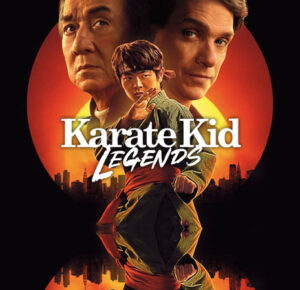Director: Shinya Tsukamoto
Producer: Shinya Tsukamoto
Cast: Tomoro Taguchi, Kei Fujiwara, Shinya Tsukamoto, Nobu Kanaoka, Renji Ishibashi
Running Time: 67 min.
By HKFanatic
Back in 1988, Japanese filmmaker Shinya Tsukamoto unleashed “Tetsuo: The Iron Man” upon an unsuspecting world. The movie was a seething techno-fusion of flesh, sex, and machinery that aimed to shock and disturb. It has since become a cult classic and rightfully so: despite borrowing elements from David Lynch’s “Eraserhead” and the work of David Cronenberg, “Tetsuo” is a unique vision that stands on its own and offers a viewing experience unlike any other. Anyone drawn to the darker side of cinema or just looking for something a little bit ‘out there’ should definitely sit themselves down and watch this film.
Shinya Tsukamoto’s black and white cinematography is immediately striking. He portrays the world as a mess of wires and circuitry, an industrial hell of smoke and rubble. Right away comparisons can be made to the seminal David Lynch movie “Eraserhead”. The two films are very similar in look and tone, and the Fetishist’s internal prison (it’ll make sense once you see the movie) directly recalls The Man in the Planet. However, I found “Tetsuo” to be a little easier to follow than “Eraserhead”, as well as slightly less disturbing. Whether or not this is good or bad depends upon your own personal taste. One thing that has always intrigued me about Tsukamoto is how he wears his American influences on his sleeves. Most Japanese directors don’t seem all took taken by Hollywood but Tsukamoto is a fan of filmmakers like Lynch and Sam Raimi and he isn’t afraid to show it in his work.
The premise of “Tetsuo” is relatively simple but it allows for so many interpretations. I’ll explain it briefly: a man is experimenting, trying to merge metal with his own body. He is struck by a car and some how imparts a techno-virus on the man who hit him. From here, we follow the guilt-stricken driver and his gradual descent into a techno-organic nightmare.
The visuals are out of this world as man becomes machine and machine becomes something else entirely. The film is low-budget but the effects work remarkably well. There is a homemade, physical quality to them that adds to the realism of the film. The main character’s transformation into a machine is visceral and shocking to watch. It’s difficult to find fault with this movie’s visuals, unless you absolutely loathe low-budget effects or fast motion camera work.
“Tetsuo” does lose focus during the third act, as many of Tsukamoto’s films tend to do. He has an uncanny ability to pull the viewer in during the first 2/3 of his movies, but for some reason he loses you towards the end. “Tetsuo” becomes far too ambiguous, esoteric, and convoluted to understand during the last fifteen minutes or so. Characters are screaming more than they’re speaking, wires are shooting out everywhere, and you have no idea what’s really happening; thus, it’s hard to care. Fortunately, the film redeems itself with a superb ending, especially the moment when a character utters the unforgettable line “Our love can destroy this whole fucking world.”
Much like “Eraserhead”, “Tetsuo” has a simple theme behind its bizarre happenings. While David Lynch’s film dealt with the anxieties of approaching fatherhood (among other things), at its core “Tetsuo” is about survivor’s guilt. With this in mind, the movie becomes easier to follow and more emotionally resonant. All of us have dealt with guilt at some point and “Tetsuo” shows, in graphic detail, how it can tear apart one’s life.
Over ten years later, “Tetsuo: The Iron Man” still shocks and disquiets. It’s a visually stunning, nihilistic piece of art that should not be missed. Just be warned: this is a relentless and haunting journey into a world where man and machine are one. I repeat: not for the squeamish!
By HKFanatic’s Rating: 8/10























Be the 1st to Comment